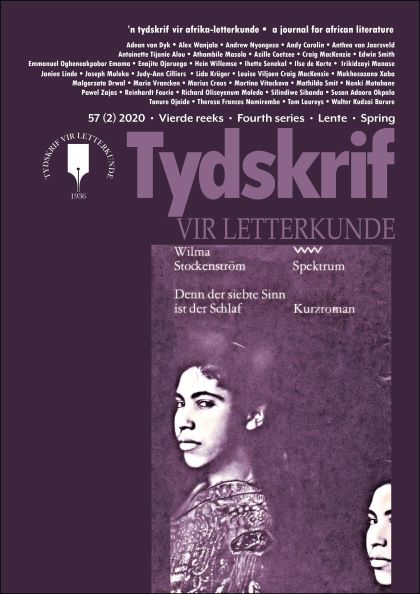Of libraries, books, and reading: A journey of meaning making
DOI:
https://doi.org/10.17159/tl.v57i2.8798Keywords:
history, books, reading, struggle, apartheid, exile, culture, South AfricaAbstract
In this essay I seek to demonstrate how an iterative reading of Archie L. Dick’s The Hidden History of South Africa’s Book and Reading Culture (2012), read through a life history lens, makes meaning of the lived experiences of South Africans—particularly during the time of the struggle against Apartheid, which is the focus of this essay. Relying on the life history approach to the recounting and exploration of South African history through the library, book, and reading culture of South Africans, I trace the complex and multi-layered experience of South Africa and its peoples as reported in The Hidden History. Interwoven with my own experiences with libraries, books, reading, and writing, I unveil the significant making of meaning in Dick’s enterprise. As demanded by Dick, I confirm in this essay that South African liberation history must indeed include the roles played by librarians, books, and the experiences of ordinary South Africans in order to provide a fuller appreciation of the various influences and understanding of South Africa’s past.
Downloads
References
Adriansen, Hanne K. “Timeline interviews: A tool for conducting life history research.” Qualitative Studies, vol. 3, no. 1, 2012, pp. 40–55.
Associated Press. “Heinz G. Konsalik, 78, German Novelist.” The New York Times. 4 Oct. 1999.
Dick, Archie L. The Hidden History of South Africa’s Book and Reading cultures. U of Toronto P, 2012.
Editors of Freedomways. Paul Robeson: The Great Forerunner. Dobson, 1978.
Goldstone, Carvin. “Honour our Indian heroes.” IOL. https://www.iol.co.za/news/politics/honour-our-indian-heroes-356782.
Hengeveld, Richard & Jaap Rodenburg, eds. Embargo: Apartheid’s Oil Secrets Revealed. Amsterdam U P, 1995.
Hofmeyr, Isabel. “Review: The Hidden History of South Africa’s Book and Reading Cultures by Archie L. Dick.” African Studies Review vol 57, no. 3, 2014, pp. 215–16.
Kearsney College Old Boys. “John Pampallis.” https://www.kearsney.com/oldboys/kearsney-college-old-boys/notable-alumni/john-pampallis/. Accessed 20 July 2020.
Magaziner, Daniel. “Review: The Hidden History of South Africa’s Book and Reading Cultures by Archie L. Dick.” The American Historical Review vol. 119, no. 3, 2014, pp. 1023–4.
Morrow, Seán. “Dakawa Development Centre: An African National Congress Settlement in Tanzania, 1982–1992.” African Affairs vol. 97, no. 389, 1998, pp. 497–521.
Morrow, Seán, Brown Maaba & Loyiso Pulumani. Education in Exile: SOMAFCO, the ANC School in Tanzania, 1978 to 1992. HSRC, 2004.
Slater, Rachel. “Using life histories to explore change: women’s urban struggles in Cape Town, South Africa.” Gender and Development vol. 8, no. 2, 2000, pp. 38–46.
South African History Online. “Leon Lionel Meyer.” South African History Online. https://www.sahistory.org.za/people/leon-lionel-meyer.
Downloads
Published
Issue
Section
License
Copyright (c) 2020 Tydskrif vir Letterkunde

This work is licensed under a Creative Commons Attribution-ShareAlike 4.0 International License.


 https://orcid.org/0000-0001-6465-6584
https://orcid.org/0000-0001-6465-6584


.png)